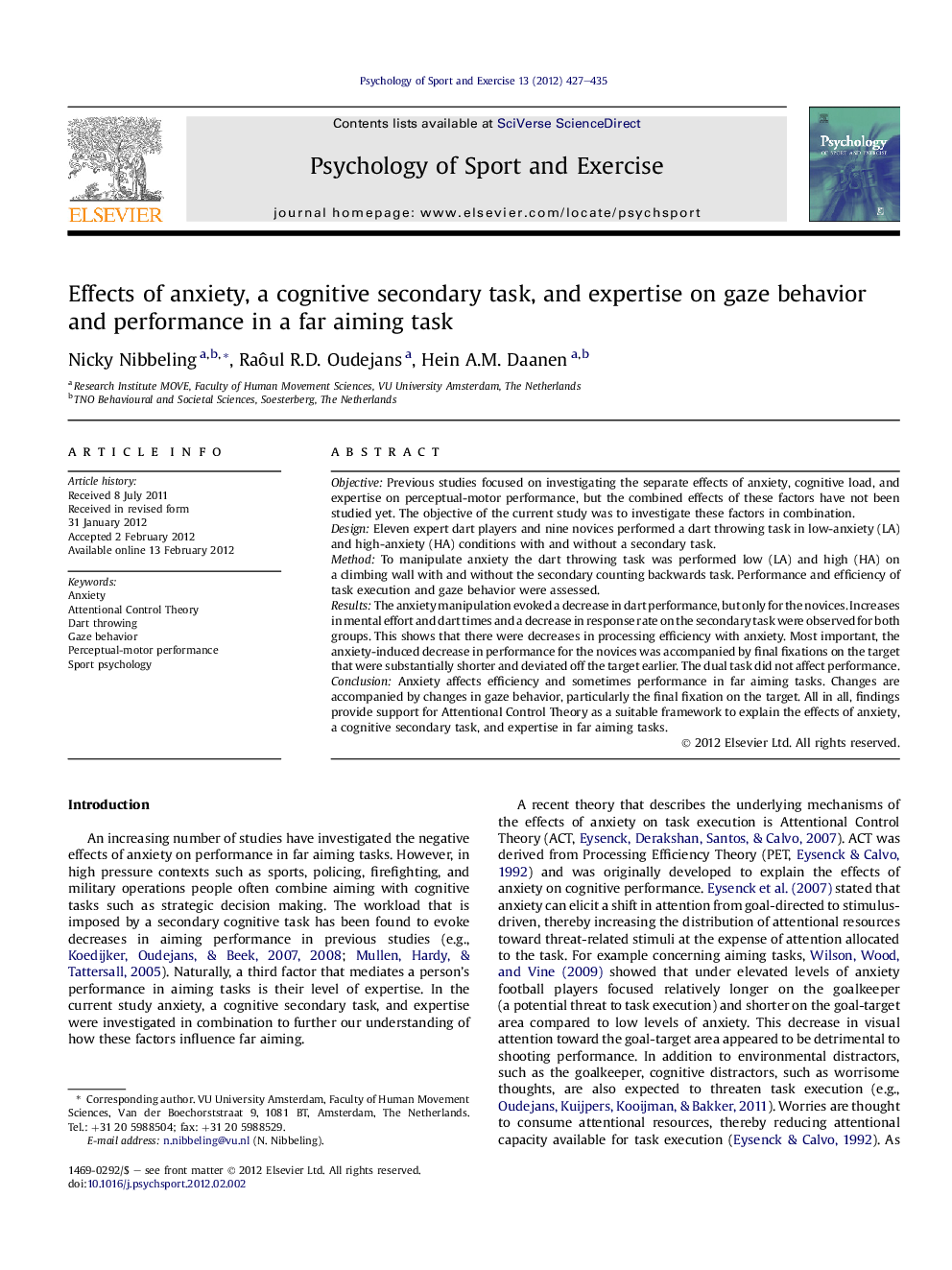| Article ID | Journal | Published Year | Pages | File Type |
|---|---|---|---|---|
| 894728 | Psychology of Sport and Exercise | 2012 | 9 Pages |
ObjectivePrevious studies focused on investigating the separate effects of anxiety, cognitive load, and expertise on perceptual-motor performance, but the combined effects of these factors have not been studied yet. The objective of the current study was to investigate these factors in combination.DesignEleven expert dart players and nine novices performed a dart throwing task in low-anxiety (LA) and high-anxiety (HA) conditions with and without a secondary task.MethodTo manipulate anxiety the dart throwing task was performed low (LA) and high (HA) on a climbing wall with and without the secondary counting backwards task. Performance and efficiency of task execution and gaze behavior were assessed.ResultsThe anxiety manipulation evoked a decrease in dart performance, but only for the novices. Increases in mental effort and dart times and a decrease in response rate on the secondary task were observed for both groups. This shows that there were decreases in processing efficiency with anxiety. Most important, the anxiety-induced decrease in performance for the novices was accompanied by final fixations on the target that were substantially shorter and deviated off the target earlier. The dual task did not affect performance.ConclusionAnxiety affects efficiency and sometimes performance in far aiming tasks. Changes are accompanied by changes in gaze behavior, particularly the final fixation on the target. All in all, findings provide support for Attentional Control Theory as a suitable framework to explain the effects of anxiety, a cognitive secondary task, and expertise in far aiming tasks.
► We examined combined effects of anxiety, cognitive load, and expertise on far aiming. ► Anxiety only evoked a decrease in aiming performance for novices. ► Processing efficiency was affected for novices and experts. ► Changes in performance and efficiency were accompanied by changes in gaze behavior. ► A suitable framework to explain the results is Attentional Control Theory.
